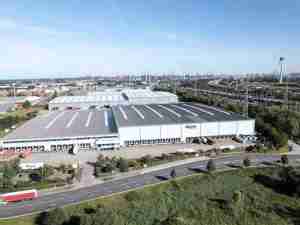UPDATE: Truckers go on strike at 4 shipping companies at Southern California ports
By: Reuters | Apr 27 2015 at 04:54 PM | Ports & Terminals
Tractor-trailer drivers who haul freight from the ports of Los Angeles and Long Beach went on strike against four trucking firms on Monday, demanding recognition as employees rather than contractors in a move reviving labor tension around the country’s busiest cargo hub.
Delegations of drivers notified the companies of their intent to strike at 6 a.m. PDT, with picket lines going up immediately at the companies’ truck yards, Teamsters spokeswoman Barb Maynard told reporters on a conference call.
The strikers planned to expand picket lines to marine terminals, rail yards and customer warehouses where the companies’ trucks were dispatched, Maynard said.
Port officials reported little or no immediate interference with operations at the waterfront.
Terminal operators largely avoided disruptions inside the ports during a previous wave of such strikes last year by turning away trucks from targeted companies, and Maynard said that appeared to be happening again on Monday.
The four drayage firms now at odds with striking drivers represent fewer than 500 of the 13,600 trucks registered to serve the ports of Los Angeles and Long Beach, said Phillip Sanfield, a spokesman for L.A.‘s port.
Still, the picketing comes as West Coast port traffic is just recovering from months of slowdowns stemming from a previous dispute between dockworkers and major shipping companies. That conflict, which snarled trans-Pacific trade and reverberated through the U.S. economy, was settled in February.
The port drivers accuse the trucking companies of wage theft by illegally misclassifying them as independent contractors, deducting truck-leasing charges and other expenses from their paychecks.
The truckers are demanding to be reclassified as employees with the right to union representation at the four companies - Pacific 9 Transportation, Intermodal Bridge Transport, Pacer Cartage, and a Pacer subsidiary, Harbor Rail Transport.
Several hundred drivers were participating in the strike, picketing as far away as a San Diego distribution center where Pacer delivers auto parts for a Toyota plant in Mexico, Maynard said.
The outcome of the dispute has implications for hundreds of companies and thousands of truckers in Southern California serving the twin ports, which together handle 43 percent of containerized goods entering the United States.
About 500 truckers have filed misclassification claims with state labor officials, winning back wages and penalties in all 56 cases decided so far, many of them against companies singled out for Monday’s walkout, the Teamsters said.
California trucking companies face potential liability for wage-and-hour violations amounting to nearly $1 billion annually from claims yet to be brought by thousands more drivers, the labor-backed National Employment Law Project has estimated.
In January, truckers won a $2 million court judgment against Pacer that drivers expect will bolster class-action litigation against other firms. Pacer has said it will appeal the ruling.
In conjunction with its campaign on behalf of port truckers, the Teamsters reached a “labor peace agreement” with another major firm targeted in the past, Green Fleet Systems, allowing its drivers to decide whether to organize, the company and union said in a statement.









